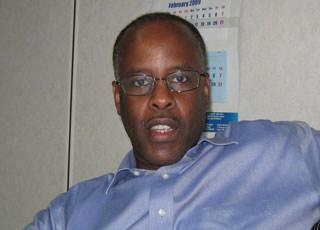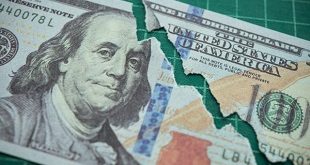
By Patrick Kagenda
As stockbrokers and punters eagerly wait for the return of the National Social Security Fund (NSSF) to trading on the Uganda Securities Exchange in Kampala, regional financial markets experts are concerned about its management.
Company Secretary Martin Bandebire, who is NSSF’s acting managing director, has not said it is returning to trading.
In fact, Mr Bandebire raised eye-brows while appearing before a parliamentary committee early this month, when he indicated that he his unlikely to venture into investing without a regulatory body to oversee his decisions.
An NSSF insider told The Independent that Mr Bandebire’s caution may be justified but it shows that he is unprepared to lead.
“The fund is supposed to be a market maker and a market player. In times of a recession like the one being experienced today globally, the fund should have taken a bullish position and buy shares now when they are cheap. But the people at the helm of the fund today lack an investment attitude,” an NSSF insider said. “The fund is supposed to develop the economy and not to suffocate it like now,” another said.
There have also been complaints of no interaction between the stockbrokers and NSSF top brass as to the direction in NSSF. It is not clear if it will deal in treasury bills only or will also go for the equities.
On March 3, the Daily Monitor newspaper carried a story indicating that former Minister of Finance Dr. Ezra Suruma had on February 12 cleared NSSF to return to trading.
The Independent‘s attempts to talk to Mr Bandebire failed but Finance market experts want him to stick to NSSF’s Five-Year Strategic plan which stipulates a 50:30:30 portfolio mix of shares, bonds, and real estate respectively.
The ministry of Finance ordered NSSF to suspend trading on the USE five months ago at the height of the scandal over its purchase of land worth Shs 11 billion from powerful cabinet ministers. There were reports of corruption that led to the suspension of its bullish Managing Director, Mr Chandi Jamwa.
Since then, listed companies have seen the value of their shares plummet.
As of March 6 the All Share Index, which is a composite measure of price changes of shares traded, had dropped 30% to 560.51 points.Foreign capital flight resulting from the global financial crisis and apathy from unfulfilled investor expectations from share offers last year contributed to the decline but NSSF’s absence is quoted as the leading factor.
| USE ALSI (3 MONTHS) |
Mr Simon Rutega, the Chief Executive Officer of the USE told The Independent that about three or four issuers of bonds were ready to raise long term money in the market but were waiting for NSSF to come back into the market.
Nation Insurance Corporation, National Water and Sewerage Corporation, Stanbic Bank and Equity Bank have been mentioned.
“The return of NSSF would constitute a stimulus package for us,” he said, “Its absence has distorted prices.”
NSSF, a compulsory saving scheme for private sector workers, collects upto Shs 15 billion per month in member subscription and pays out only an average Shs 28 billion per year in mature claims.
The balance is supposed to be invested in shares, bonds, and real estate in accordance with its five-year strategic plan. Before it was suspended from trading, NSSF controlled 80% of the market share worth between Shs 150-180 billion.
Last year, NSSF hit a windfall when it shifted its portfolio mix away from the low return liquid assets to the high yielding but volatile equity market. Its revenues hit an all time high of Shs 1 trillion and the fund was offering its members 14% interest on saving. Before its suspension, NSSF insiders say it made Shs 51 billion in capital gains in the 2007/08 financial year.
Shs 11 billion was from the SafariCom IPO, Shs 18 billion from its Stanbic shares and Shs 13 billion from its Uganda Clays Ltd.
Despite its CEO’s bearish attitude, NSSF’s imminent return to trading has sparked excitement.
Equity Stocks’ investment manager Edward Ruyonga said: “The return of NSSF will help boost the stocks market. NSSF was the biggest buyer of stocks. Their absence on the market resulted in demand for stocks declining which had a negative impact on trading”.
“Stock prices are falling every day but if NSSF comes back on board the situation will be reversed. The slow liquidity will be no more,” said Musa Nsubuga, a Trade and Sales Analyst at MBEA stock brokerage.
 The Independent Uganda: You get the Truth we Pay the Price
The Independent Uganda: You get the Truth we Pay the Price


